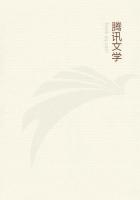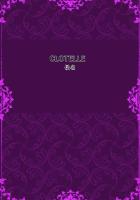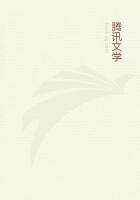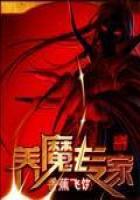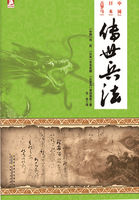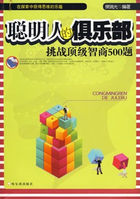"My friend, Alfred is saved. There has been no fresh attack, and we have nearly reached the fourteenth day without the improvement having altered. After the brain affection inflammation of the lungs declared itself, and this rather alarmed us for two days. . . . He is extremely weak at present, and he wanders occasionally. He has to be nursed night and day.
Do not imagine, therefore, that I am only making pretexts for the delay in my work. I have not undressed for eight nights. I sleep on a sofa, and have to get up at any minute. In spite of this, ever since I have been relieved in my mind about the danger, I have been able to write a few pages in the mornings while he is resting. You may be sure tht I should like to be able to take advantage of this time to rest myself. Be assured, my friend, that I am not short of courage, nor yet of the will to work.
You are not more anxious than I am that I should carry out my engagements. You know that a debt makes me smart like a wound.
But you are friend enough to make allowances for my situation and not to leave me in difficulties. I am spending very wretched days here at this bedside, for the slightest sound, the slightest movement causes me constant terror. In this disposition of mind I shall not write any light works. They will be heavy, on the contrary, like my fatigue and my sadness.
"Do not leave me without money, I beseech you, or I do not know what will happen to me. I spend about twenty francs a day in medicine of all sorts. We do not know how to keep him alive. . . ."These letters give the lie to some of the gossip that has been spread abroad with regard to the episode of the Hotel Danieli.
And I too, thanks to these letters, shall have put an end to a legend!
In the second volume of Wladimir Karenine's work on George Sand, on page 61, we have the following words--"Monsieur Plauchut tells us that, according to Buloz, Musset had been enticed into a gambling hell during his stay in Venice, and had lost about four hundred pounds there. The imprudent young man could not pay this debt of honour, and he never would have been able to do so. He had to choose between suicide or dishonour.
George Sand did not hesitate a moment. She wrote at once to the manager of the _Revue_, asking him to advance the money."And this debt was on her shoulders for a long time.
The facts of the case are as follows, according to a letter from George Sand to Buloz: "I beseech you, as a favour, to pay Alfred's debt and to write to him that it is all settled. You cannot imagine the impatience and the disturbance that this little matter cause him.
He speaks to me of it every minute, and begs me every day to write to you about it. He owes these three hundred and sixty francs (L14 8_s_.) to a young man he knows very little and who might talk of it to people. . . . You have already advanced much larger sums to him. He has always paid you back, and you are not afraid that this would make you bankrupt. If, through his illness, he should not be able to work for a long time, my work could be used for that, so be at ease. . . . Do this, I beseech you, and write him a short letter to ease his mind at once. I will then read it to him, and this will pacify one of the torments of his poor head. Oh, my friend, if you only knew what this delirium is like! What sublime and awful things he has said, and then what convulsions and shouts!
I do not know how he has had strength enough to pull through and how it is that I have not gone mad myself. Adieu, adieu, my friend."There really was a gambling debt, then, but we do not know exactly where it was contracted. It amounted to three hundred and sixty francs, which is very different from the ten thousand francs and the threat of suicide.
And now we come to the pure folly! Musset had been attended by a young doctor, Pietro Pagello. He was a straightforward sort of young man, of rather slow intelligence, without much conversation, not speaking French, but very handsome. George Sand fell in love with him. One night, after having scribbled a letter of three pages, she put it into an envelope without any address and gave it to Pagello.
He asked her to whom he was to give the letter. George Sand took the envelope back and wrote on it: "To stupid Pagello."We have this declaration, and among other things in the letter are the following lines: "You will not deceive me, anyhow. You will not make any idle promises and false vows. . . . I shall not, perhaps, find in you what I have sought for in others, but, at any rate, I can always believe that you possess it. . . . I shall be able to interpret your meditations and make your silence speak eloquently. . . ." This shows us clearly the kind of charm George Sand found in Pagello. She loved him because he was stupid.
The next questions are, when did they become lovers, and how did Musset discover their intimacy? It is quite certain that he suspected it, and that he made Pagello confess his love for George Sand.[20] Amost extraordinary scene then took place between the three of them, according to George Sand's own account. "Adieu, then," she wrote to Musset, later on, "adieu to the fine poem of our sacred friendship and of that ideal bond formed between the three of us, when you dragged from him the confession of his love for me and when he vowed to you that he would make me happy. Oh, that night of enthusiasm, when, in spite of us, you joined our hands, saying:
`You love each other and yet you love me, for you have saved me, body and soul." Thus, then, Musset had solemnly abjured his love for George Sand, he had engaged his mistress of the night before to a new lover, and was from henceforth to be their best friend.
Such was the ideal bond, such the sacred friendship! This may be considered the romantic escapade.
[20] On one of George Sand's unpublished letters to Buloz the following lines are written in the handwriting of Buloz:
"In the morning on getting up he discovered, in an adjoining room, a tea-table still set, but with only one cup.
"`Did you have tea yesterday evening?'
"`Yes,' answered George Sand, `I had tea with the doctor.'



